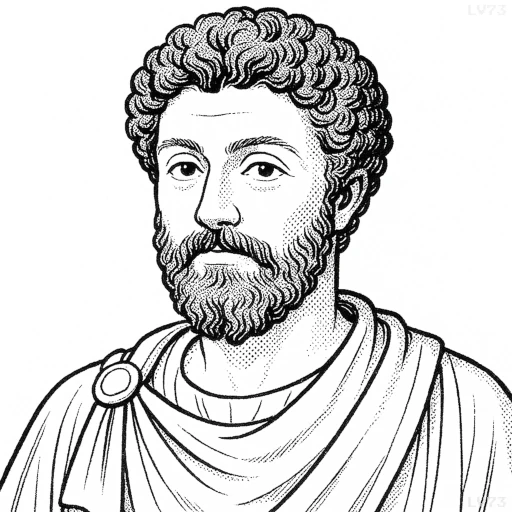“Let it be your constant method to look into the design of people’s actions, and see what they would be at, as often as it is practicable; and to make this custom the more significant, practice it first upon yourself.”

- April 26, 121 – March 17, 180
- Roman Empire
- Roman Emperor
table of contents
Quote
“Let it be your constant method to look into the design of people’s actions, and see what they would be at, as often as it is practicable; and to make this custom the more significant, practice it first upon yourself.”
Explanation
In this quote, Marcus Aurelius advises us to carefully examine the intentions behind the actions of others, as well as our own. By observing people’s behavior and discerning what they are truly striving for—whether it is driven by virtue, self-interest, or other motives—we gain insight into their character and motivations. This reflective practice allows us to better understand the world around us and interact with others more wisely. Aurelius goes further to suggest that this practice of introspection should begin with ourselves, making it a habit to examine our own motives and actions first, ensuring that we act in accordance with our highest values.
Aurelius, a ruler and philosopher, understood that as a leader and as a person, it was essential not only to understand the actions of others but also to be mindful of his own inner intentions. By constantly examining and aligning his actions with reason and virtue, he cultivated greater clarity and integrity in his leadership and personal life. In modern life, this practice helps us navigate complex relationships and situations, where people’s actions can be motivated by various, sometimes hidden, desires. By understanding others’ motivations, we can respond with more compassion and wisdom.
In practical terms, this quote encourages us to engage in self-reflection and mindfulness in our interactions. For instance, when reacting to a colleague’s behavior, we can take a moment to ask ourselves, “What might they be trying to achieve?” and consider if we are responding with the same level of awareness to our own actions and motives. This habit not only improves our understanding of others but also helps us act more intentionally, ensuring that our behavior aligns with our principles and fosters more authentic and harmonious relationships.
Would you like to share your impressions or related stories about this quote in the comments section?


